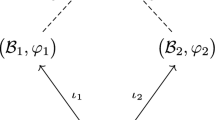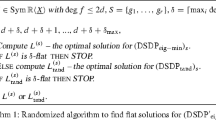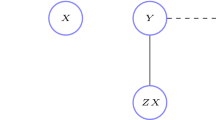
Overview
- Focuses on polynomial optimization problems in matrix unknowns
- Includes fundamental material from algebra, functional analysis and mathematical optimization
- Provides instructions on using NCSOStools open source package to obtain illustrated results
- Includes supplementary material: sn.pub/extras
Part of the book series: SpringerBriefs in Mathematics (BRIEFSMATH)
Buy print copy
About this book
This book presents recent results on positivity and optimization of polynomials in non-commuting variables. Researchers in non-commutative algebraic geometry, control theory, system engineering, optimization, quantum physics and information science will find the unified notation and mixture of algebraic geometry and mathematical programming useful. Theoretical results are matched with algorithmic considerations; several examples and information on how to use NCSOStools open source package to obtain the results provided. Results are presented on detecting the eigenvalue and trace positivity of polynomials in non-commuting variables using Newton chip method and Newton cyclic chip method, relaxations for constrained and unconstrained optimization problems, semidefinite programming formulations of the relaxations and finite convergence of the hierarchies of these relaxations, and the practical efficiency of algorithms.
Similar content being viewed by others
Keywords
- Newton chip method
- Newton cyclic chip method
- Sum of hermitian squares
- non-commutative algebraic geometry
- semidefinite programming
- polynomial data
- free analysis
- free real algebraic geometry
- quantum theory
- quantum information science
- mathematical optimization
- Unconstrained optimization
- quantum mechanics
- Extracting optimizers
Table of contents (5 chapters)
-
Front Matter
-
Back Matter
Reviews
Authors and Affiliations
Bibliographic Information
Book Title: Optimization of Polynomials in Non-Commuting Variables
Authors: Sabine Burgdorf, Igor Klep, Janez Povh
Series Title: SpringerBriefs in Mathematics
DOI: https://doi.org/10.1007/978-3-319-33338-0
Publisher: Springer Cham
eBook Packages: Mathematics and Statistics, Mathematics and Statistics (R0)
Copyright Information: The Author(s) 2016
Softcover ISBN: 978-3-319-33336-6Published: 16 July 2016
eBook ISBN: 978-3-319-33338-0Published: 07 June 2016
Series ISSN: 2191-8198
Series E-ISSN: 2191-8201
Edition Number: 1
Number of Pages: XV, 104
Number of Illustrations: 2 illustrations in colour
Topics: Algebraic Geometry, Quantum Computing, Operations Research, Management Science, Mathematical Software, Systems Theory, Control



